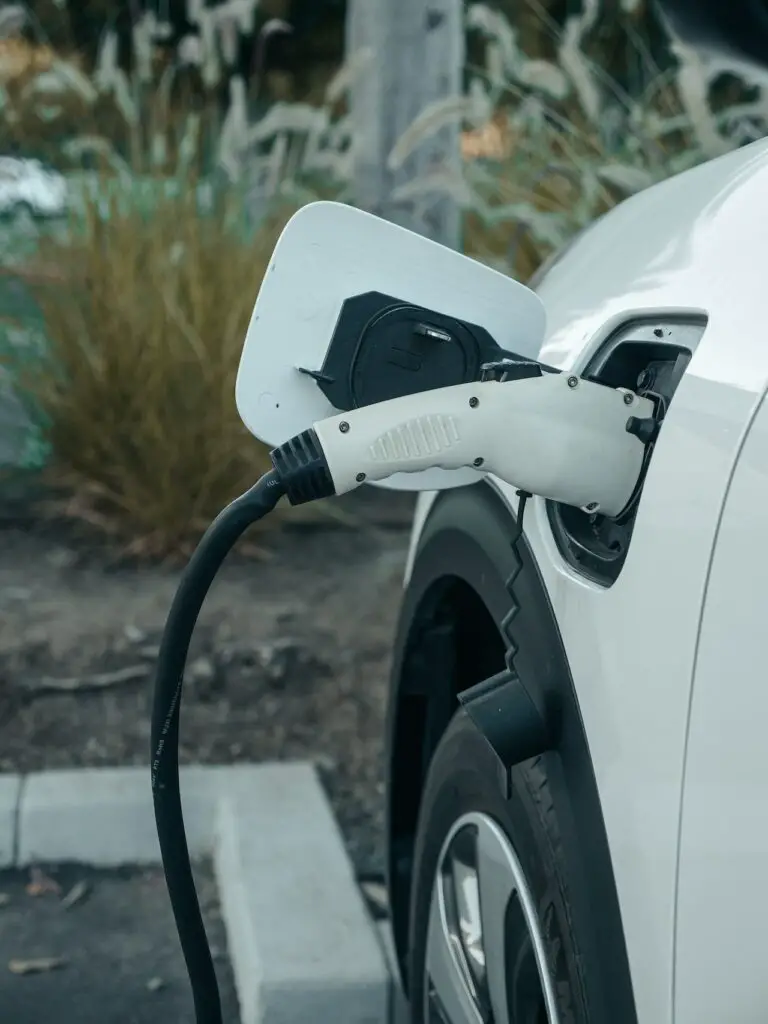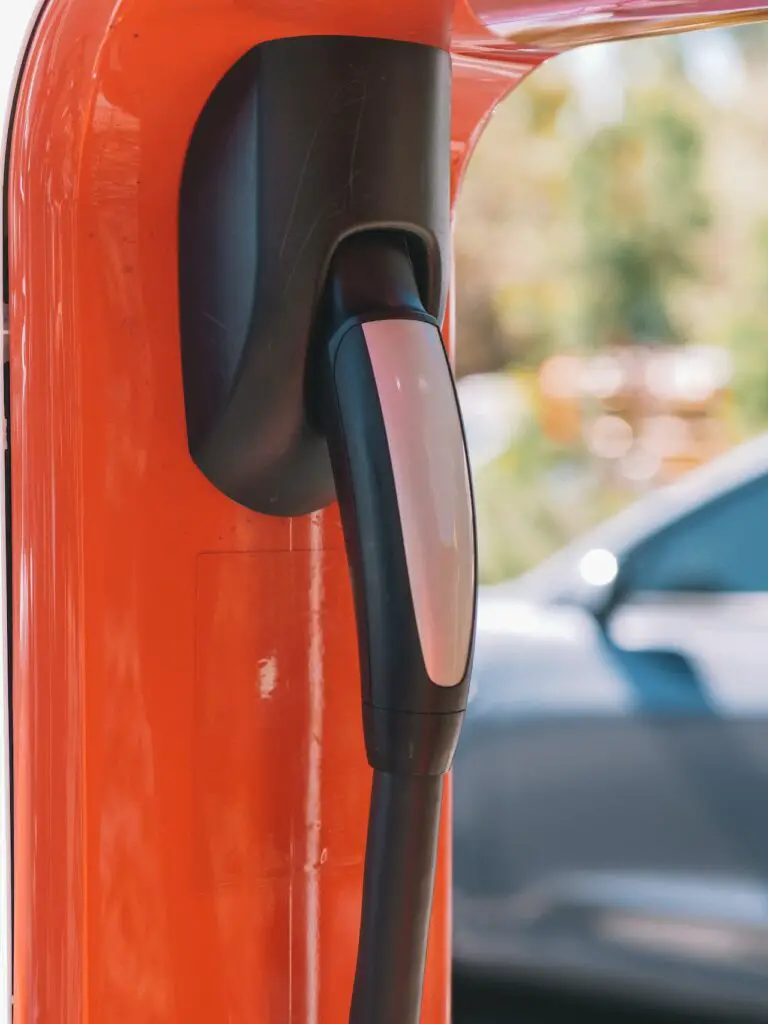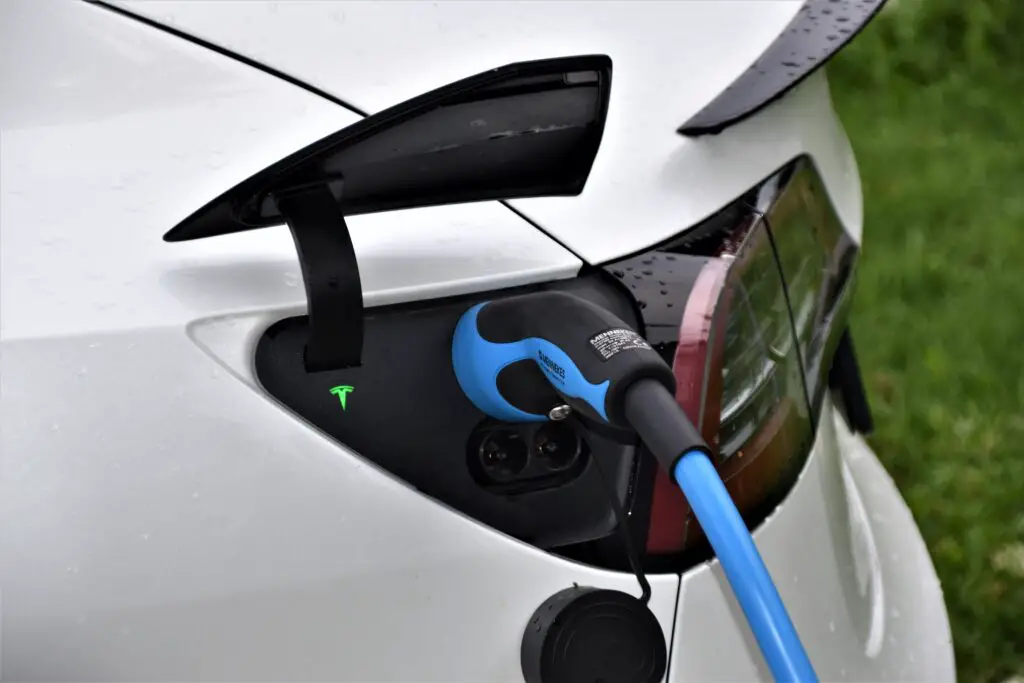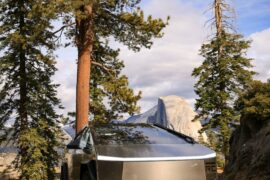Contents
Hertz Tesla rebill charge.
In a groundbreaking move that reverberated across the automotive and sustainability landscapes, Hertz, a global leader in car rental services, made headlines with its momentous decision to integrate Tesla vehicles into its renowned rental fleet. This strategic partnership marks a pivotal juncture in the evolution of both Hertz and Tesla, highlighting a significant step towards a more sustainable future in the transportation sector.
As the world witnesses a paradigm shift towards electric mobility, Hertz’s choice to embrace Tesla’s electric vehicles underscores the growing importance of sustainable transportation solutions. The once niche market of electric cars is now taking center stage as industry leaders recognize the need to transition away from traditional fossil-fuel-powered vehicles. Hertz’s commitment to incorporating Tesla vehicles reflects a broader commitment to environmental responsibility, setting a new standard for the car rental industry.
This introduction sets the stage for a deeper exploration into the intricacies of this transformative partnership, delving into the operational, financial, and environmental considerations, with a particular focus on the intriguing concept of the “rebill charge.” As we navigate the landscape of Hertz, Tesla, and the rebill charge, we uncover not only the dynamics of this collaboration.

Hertz-Tesla Partnership
Delving deeper into the strategic alliance between Hertz and Tesla unveils a multifaceted collaboration that extends beyond the mere inclusion of electric vehicles in a rental fleet.
Exploring the Details:
The partnership between Hertz and Tesla involves a comprehensive integration of electric vehicles, particularly Tesla models, into Hertz’s extensive rental offerings. Beyond a simple exchange of vehicles, the collaboration includes considerations such as charging infrastructure, maintenance protocols, and potentially unique customer experiences. This section aims to dissect the intricacies of how Hertz and Tesla are aligning their operational strategies to ensure a seamless fusion of cutting-edge electric vehicles into Hertz’s global fleet.
Implications for the Car Rental Industry:
Hertz’s bold move towards Tesla signals a significant shift within the car rental industry. Traditional car rental companies are now not only acknowledging but actively embracing the future of transportation, symbolized by electric vehicles. The implications extend far beyond Hertz’s fleet; it sets a precedent for the industry as a whole. This section explores how Hertz’s embrace of Tesla vehicles might catalyze a broader trend, prompting other rental companies to follow suit and accelerate the adoption of electric vehicles in rental fleets worldwide.
Impact on Electric Vehicle Adoption:
The collaboration between Hertz and Tesla is not just a business arrangement; it’s a catalyst for wider electric vehicle adoption. By making premium electric vehicles accessible through a renowned rental service, more individuals have the opportunity to experience and become accustomed to electric mobility. This section delves into the potential ripple effects of this partnership on consumer perceptions, breaking down barriers to electric vehicle adoption, and contributing to the broader electrification of the automotive landscape.
As we navigate through the details of the Hertz-Tesla partnership, we uncover not only a transformative business agreement but also a catalyst for change within the car rental industry.
Understanding “Rebill Charge”
As Hertz embarks on the electrifying journey with Tesla vehicles, a key concept takes center stage – the “rebill charge.” Understanding this term is pivotal to grasping the financial intricacies and operational considerations involved in maintaining an electric vehicle fleet.
Definition of “Rebill Charge”:
In the context of managing an electric vehicle fleet, the term “rebill charge” refers to the recurring costs associated with charging the vehicles. This encompasses not only the actual cost of electricity but also factors in infrastructure maintenance, potential partnerships with charging networks, and any other expenses related to ensuring that Tesla vehicles in Hertz’s fleet remain charged and ready for use.
Cruciality for Companies Operating a Tesla Fleet:
Managing rebill charges is a critical aspect for companies like Hertz, especially when dealing with a fleet of electric vehicles such as those from Tesla. Unlike traditional fueling systems, electric vehicles rely on a network of charging infrastructure. The logistics of ensuring that each vehicle is charged and ready for the next rental involves strategic planning and financial considerations.
For Hertz, efficient management of rebill charges directly impacts operational efficiency and financial sustainability. It’s not merely about the act of charging the vehicles but understanding the nuances of cost, accessibility, and reliability of charging infrastructure. This section will delve into why companies operating electric vehicle fleets, particularly Tesla fleets, must navigate the landscape of rebill charges adeptly to strike the right balance between service reliability and financial viability.
As we unfold the layers of the “rebill charge,” it becomes evident that mastering this aspect is key to the seamless integration of Tesla vehicles into Hertz’s fleet, ensuring.

Charging Infrastructure Landscape
To power the transition to a Tesla-centric fleet, Hertz must navigate the intricate landscape of charging infrastructure, a fundamental element in the successful integration of electric vehicles.
Charging Infrastructure for a Tesla Fleet:
Supporting a Tesla fleet necessitates a well-established and strategically positioned charging infrastructure. This section explores the various components of this infrastructure, including home charging solutions, commercial charging stations, and partnerships with charging networks. Examining the scalability, accessibility, and reliability of these charging options is crucial for Hertz in ensuring a seamless charging experience for its Tesla vehicles.
Role of Tesla’s Supercharger Network:
Central to Hertz’s charging infrastructure strategy is Tesla’s Supercharger network, a technological marvel designed to provide rapid charging capabilities. This subsection focuses on how Tesla’s Supercharger network plays a pivotal role in facilitating efficient charging for Hertz’s electric vehicles. The Supercharger network’s high-speed charging capabilities enable quick turnaround times, a vital factor for a rental fleet where vehicles must be readily available for the next customer.
Exploring the expansion plans, coverage density, and technology advancements within the Supercharger network, this section sheds light on how Hertz can leverage this infrastructure to optimize its charging operations. Additionally, it delves into potential collaborations or agreements between Hertz and Tesla to enhance the accessibility of Superchargers for Hertz’s growing electric fleet.
As Hertz and Tesla forge ahead in their partnership, understanding the nuances of the charging infrastructure landscape, with a specific emphasis on the Supercharger network, becomes paramount. Efficient utilization of these charging resources is not just about powering vehicles; it’s about ensuring Hertz’s Tesla fleet remains a reliable and attractive option for customers seeking the convenience of electric mobility.
Financial Considerations
Amidst the electrifying transformation of Hertz’s fleet with Tesla vehicles, a careful examination of the financial landscape becomes imperative. This section delves into the economic aspects associated with rebill charges, dissecting key factors that play a pivotal role in shaping the financial viability of this groundbreaking endeavor.
Analysis of Economic Aspects:
The integration of Tesla vehicles into Hertz’s fleet introduces a new dimension of financial considerations, and at its core lies the analysis of rebill charges. This involves a comprehensive review of the costs associated with maintaining an electric vehicle fleet, encompassing not only the direct expense of electricity but also the broader financial implications of charging infrastructure. Hertz must strategically navigate these financial intricacies to ensure that the shift to Tesla vehicles aligns with both profitability goals and sustainable business practices.
Electricity Costs:
One of the primary components of rebill charges is the cost of electricity. This subsection provides an in-depth analysis of how fluctuations in electricity costs, both regionally and over time, impact the overall operational expenses for Hertz. It explores potential strategies for optimizing electricity consumption, negotiating favorable rates, and leveraging renewable energy sources to minimize costs.
Infrastructure Investments:
The transition to a Tesla fleet requires substantial investments in charging infrastructure. This section examines the financial commitments involved in establishing and maintaining a reliable and efficient charging network. It considers factors such as the deployment of charging stations, upgrades to existing facilities, and any technological investments required to support the charging infrastructure.
Potential Cost Savings or Challenges:
Beyond the initial financial commitments, Hertz must anticipate potential cost savings and challenges associated with managing rebill charges. This subsection explores innovative solutions that might contribute to cost savings, such as smart charging technologies or partnerships with charging networks. Simultaneously, it addresses potential challenges, such as unexpected maintenance costs or the need for rapid scalability of the charging infrastructure.
As Hertz charts its financial course into the realm of electric mobility, a meticulous analysis of the economic aspects associated with rebill charges is indispensable. By understanding the nuances of electricity costs, infrastructure investments, and potential financial challenges or savings, Hertz can navigate the financial landscape adeptly and ensure a sustainable transition to a Tesla-centric fleet.
Operational Efficiency
Efficiency is the linchpin in Hertz’s pursuit of a seamlessly integrated Tesla fleet. This section scrutinizes how adeptly managing rebill charges translates into heightened operational efficiency and explores cutting-edge technologies and strategies that could amplify this effect.
Contribution to Overall Operational Efficiency:
Efficiently managing rebill charges is not just a financial consideration; it is a cornerstone of operational efficiency. This subsection dissects the interplay between rebill charges and the day-to-day operations of Hertz’s electric vehicle fleet. It explores how streamlined charging processes contribute to quicker turnaround times, ensuring that Tesla vehicles are readily available for the next rental. Additionally, it considers the impact of efficient charging on customer satisfaction, an integral aspect of operational success in the car rental industry.
Technological Advancements:
In the dynamic landscape of electric mobility, technology is a catalyst for operational advancements. This part of the article sheds light on the latest technological innovations designed to optimize charging processes. It might encompass smart charging solutions that intelligently manage charging schedules, advanced analytics tools to predict charging demand, or integration with Hertz’s fleet management systems to create a seamless charging experience. Technological advancements play a pivotal role in elevating operational efficiency, and understanding these innovations is crucial for Hertz as it embraces a Tesla-centric fleet.
Strategies to Optimize Charging Processes:
Beyond technology, strategic planning and execution are paramount in optimizing charging processes. This section explores various strategies that Hertz can employ to enhance efficiency in managing rebill charges. It might include insights into fleet scheduling to align with off-peak charging hours, establishing priority charging for vehicles in high demand, or potential collaborations with charging infrastructure providers for exclusive access during peak times. These strategies not only streamline operations but also contribute to cost-effectiveness and customer service excellence.
As Hertz navigates the operational landscape of a Tesla-dominated fleet, the efficient management of rebill charges emerges as a linchpin for success. By delving into the symbiotic relationship between operational efficiency and rebill charges, and by exploring the technological advancements and strategic initiatives that amplify this efficiency, Hertz can pave the way for a seamless transition to electric mobility.

Sustainability Impact
Beyond the realms of finance and operations, Hertz’s embrace of Tesla vehicles carries profound implications for sustainability. This section assesses the environmental benefits and sustainability goals derived from this groundbreaking partnership, highlighting the alignment of rebill charge management with broader initiatives for a greener future.
Environmental Benefits of Adopting Tesla Vehicles:
The adoption of Tesla vehicles by Hertz is not solely a business strategy; it is a commitment to environmental stewardship. This subsection delves into the specific environmental benefits associated with Tesla’s electric vehicles, including reduced greenhouse gas emissions, diminished reliance on fossil fuels, and a positive impact on air quality. By choosing Teslas, Hertz contributes to the mitigation of the automotive industry’s environmental footprint, fostering a cleaner and healthier environment.
Sustainability Goals and Corporate Responsibility:
Hertz’s decision to integrate Tesla vehicles aligns with a broader commitment to sustainability. This part of the article explores how the adoption of electric vehicles, coupled with efficient rebill charge management, reflects Hertz’s dedication to corporate responsibility. It may touch upon Hertz’s broader sustainability goals, such as reducing its carbon footprint, promoting eco-friendly practices, and contributing to global efforts to combat climate change.
The link between Rebill Charge Management and Sustainability:
Managing rebill charges goes beyond economic considerations; it is a strategic move that dovetails with broader sustainability initiatives. This subsection analyzes how the efficient management of rebill charges directly contributes to sustainability goals. It may discuss the optimization of charging schedules to align with renewable energy sources, minimizing the overall environmental impact of the charging process. Additionally, it could explore Hertz’s potential role as a sustainability advocate in the car rental industry, setting a precedent for environmentally conscious practices.
As Hertz pioneers the intersection of car rentals, Tesla vehicles, and sustainability, understanding the environmental benefits and the alignment with broader sustainability goals becomes paramount. By managing rebill charges with a sustainability mindset, Hertz not only contributes to a greener future but also positions itself as a leader in the global movement toward sustainable transportation.
Future Outlook
As Hertz boldly charts its course into an electrified future with Tesla vehicles, this section examines the horizon, anticipating the trajectory of electric vehicle fleets in the car rental industry and contemplating the evolving landscape of technologies and policies that may shape the management of rebill charges in the times to come.
Growth and Expansion of Electric Vehicle Fleets:
The integration of Tesla vehicles into Hertz’s fleet is not just a singular event; it is a harbinger of a broader industry shift toward electric mobility. This subsection explores the potential growth and expansion of electric vehicle fleets within the car rental industry. It considers how other rental companies might follow Hertz’s lead, driven by the dual objectives of environmental responsibility and meeting the increasing demand for electric vehicles. An examination of market trends, customer preferences, and global initiatives supporting electric mobility provides insights into the future landscape of car rentals.
Impact of Evolving Technologies:
The future of rebill charge management is intricately linked with technological advancements. This part of the article delves into emerging technologies that could reshape how electric vehicle fleets are charged. It might include advancements in battery technology, smart grid integration, or innovative solutions for wireless charging. Understanding these technological shifts is crucial for Hertz as it positions itself at the forefront of the electric mobility wave.
Consideration of Evolving Policies:
In addition to technological advancements, policies play a pivotal role in shaping the future of electric vehicle adoption. This subsection considers how evolving regulations and government incentives may impact the management of rebill charges. It explores potential shifts in charging infrastructure standards, subsidies for electric vehicle adoption, or policies encouraging the use of renewable energy sources for charging. Anticipating these policy changes allows Hertz to proactively adapt its rebill charge strategies to align with evolving regulatory landscapes.
As Hertz and Tesla set the stage for a transformative partnership, the future outlook extends beyond the immediate horizon. By examining the potential growth of electric vehicle fleets, anticipating technological advancements, and considering the influence of evolving policies, Hertz can position itself not only as an industry pioneer but also as a proactive participant in shaping the future of sustainable transportation.

Conclusion
In navigating the intersection of Hertz, Tesla, and the dynamic landscape of electric mobility, the exploration of rebill charges emerges as a pivotal aspect in ensuring the success of this transformative partnership. Let’s recap the key points discussed and underscore the importance of effectively managing rebill charges for Hertz’s seamless integration of Tesla vehicles into its rental fleet.
Summarizing Key Points:
Throughout this article, we’ve journeyed through the notable decision of Hertz to incorporate Tesla vehicles, dissecting the Hertz-Tesla partnership, understanding the intricacies of rebill charges, exploring the charging infrastructure landscape, and delving into the financial, operational, and sustainability considerations. We’ve highlighted the significance of these aspects in the broader context of Hertz’s shift towards sustainable transportation.
Significance of Managing Rebill Charges:
Efficiently managing rebill charges is not a mere financial consideration; it is a linchpin for the successful integration of Tesla vehicles into Hertz’s fleet. The ability to optimize charging processes, understand the economic nuances, and align rebill charge management with sustainability initiatives contributes directly to operational efficiency and long-term financial sustainability.
Looking Ahead:
As Hertz pioneers the path towards a Tesla-dominated fleet, the future outlook extends into the growth of electric vehicle fleets within the car rental industry. The consideration of evolving technologies and policies becomes imperative for staying at the forefront of electric mobility trends. By proactively adapting to these changes, Hertz can solidify its position as a trailblazer in sustainable transportation.
Final Emphasis:
In conclusion, effectively managing rebill charges is not merely a technical detail but a strategic imperative for Hertz. As the company embraces Tesla vehicles, it’s not just a shift in the choice of cars; it’s a commitment to a cleaner, more sustainable future. By mastering the intricacies of rebill charge management, Hertz not only ensures the success of its Tesla integration but also plays a vital role in shaping the future of electric mobility in the car rental industry.
As the wheels of innovation continue to turn, Hertz’s journey with Tesla stands as a testament to the transformative power of sustainable choices, where managing rebills, charges become a cornerstone in the ongoing evolution towards a greener and more efficient future.





